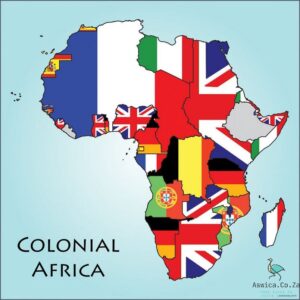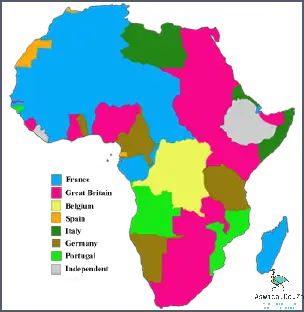
The Dutch began colonizing South Africa in the 1600s, with the first permanent settlement established in 1652 at Cape Town. The Dutch East India Company controlled the colony until 1795, when it was taken over by the British during the Napoleonic Wars. The British formally annexed the colony in 1806 and renamed it the Cape Colony. Although the British controlled the colony, many of the settlers were of Dutch descent and continued to speak Dutch as their primary language.
Contents
When Did The Dutch Colonized South Africa
The Dutch began colonizing South Africa in 1652 when Jan van Riebeeck arrived at the Cape of Good Hope from the Dutch East India Company. The Dutch East India Company, or Vereenigde Oostindische Compagnie (VOC), as it was known in Dutch, was a chartered company founded in 1602 to trade with the East Indies. The Dutch had a presence in South Africa for almost 200 years and established a few settlements with trading posts, including Cape Town and the current city of Stellenbosch. During this time, the Dutch brought slaves from Madagascar, Mozambique, and India to work the land and they also started a wine industry. In the late 18th century, the British took control of the Cape of Good Hope and the Dutch settlers were forced to move eastward, eventually establishing two republics, the Orange Free State and the South African Republic (or Transvaal). This period marked the end of Dutch colonization in South Africa, although many Dutch settlers stayed in the country and still have a presence there today.
Dutch Explorers in South Africa
The Dutch colonization of South Africa began in 1652 when a group of Dutch settlers, led by Jan van Riebeeck, arrived in the Cape of Good Hope. The Dutch East India Company had been granted exclusive rights to the area by the Dutch government and sent the settlers to establish a fort and develop trading posts. The settlement quickly grew into a thriving port for the East India Company and soon became a major trading center for the Dutch.

The Dutch settlers, known as Boers, established a new way of life in South Africa. They built churches, homes and farms, and established a type of government that was based on their traditional Dutch customs. They also introduced their own language, Afrikaans, which eventually became the country’s official language.
The Boers quickly expanded their settlements and began to move inland, seeking to find more land to farm and settle. This led to clashes with the indigenous people, who were already living in the area. The Boers soon gained control of much of the land in South Africa and established a number of independent states, known as Boer republics.
In the 19th century, the Boers clashed with the British, who were seeking to expand their influence in the region. After a series of wars, the Boer republics were eventually annexed to the British Empire in 1910. This marked the end of Dutch control in South Africa.
Today, the Afrikaner population in South Africa is the largest ethnic group and still makes up a significant portion of the country’s population. South Africa’s official language, Afrikaans, is derived from Dutch and is still spoken by many Afrikaners today. The legacy of the Dutch in South Africa is still visible in the country’s architecture, culture, and language.
The Establishment of Dutch Settlements
The establishment of Dutch settlements in South Africa has its roots in the 17th century. During this time, Dutch settlers began to colonize the region, forming a new country known as the Dutch Cape Colony. This colony was established in 1652 and marked a major milestone in the history of South Africa.

The Dutch settlers who colonized South Africa had a number of motivations for doing so. They were seeking a new land to settle in and make their own. The Dutch settlers also sought to benefit from the lucrative trade opportunities in the region. The Dutch East India Company was involved in the colonization effort and had an interest in the region’s resources.
The establishment of the Dutch Cape Colony led to a number of changes in the region. The Dutch settlers established various trading posts and forts throughout the region, which allowed them to control the flow of goods and resources. The Dutch settlers also introduced a number of new agricultural techniques and crops to the region. This allowed them to increase the food supply and make the region more prosperous.
The Dutch Cape Colony was eventually taken over by the British in 1806. The Dutch settlers were not happy about this and fought to retain control of the region. However, the British eventually won out and the Dutch Cape Colony was abolished.
Despite this, the impact of the Dutch settlement in South Africa is still seen today. The Dutch language is still spoken in some parts of the region and Dutch cuisine is still popular. The Dutch settlements also had a major impact on the architecture of the region. In many parts of South Africa, Dutch colonial buildings can still be found.
In conclusion, the establishment of Dutch settlements in South Africa in the 17th century was an important milestone in the history of the region. The Dutch settlers brought a number of changes to the region, including new trade opportunities, agricultural techniques, and architecture. The Dutch influence can still be seen in South Africa today, although the Dutch Cape Colony was eventually abolished by the British.
The Expansion of Dutch Colonization

The Dutch colonization of South Africa began in the 17th century, with the establishment of the Dutch East India Company in 1652. The Dutch were the first Europeans to settle in the region, and they officially established a permanent presence in the Cape of Goodlands in 1658. This marked the beginning of Dutch colonization in the region, and it would continue for the next two centuries.
The Dutch East India Company was a powerful company with a monopoly on trade with Asia. Through their presence in the Cape, the Dutch were able to control the trade routes between Europe and Asia, and monopolize the trade of valuable goods such as spices and other commodities. This allowed them to gain significant wealth and power in the region, leading to their expansion into other parts of South Africa.
The Dutch colonization of South Africa saw the Dutch settle in the western, northern and eastern parts of the country. In the western part of the country, the Dutch established the Cape Town colony and the colony of Stellenbosch. In the northern part of the country, the Dutch established the Orange Free State. In the eastern part of the country, the Dutch established the Transvaal Republic.
The Dutch colonization of South Africa brought with it many changes to the region. The Dutch introduced a number of new crops such as maize and tobacco, as well as livestock such as horses and oxen. The Dutch also developed a number of infrastructure projects, including ports, roads and canals. The Dutch also introduced the concept of racial segregation to the region, with the Dutch settlers ruling over the native population.
The Dutch colonization of South Africa lasted until the early 19th century, when the British took control of the Cape of Goodlands in 1806. The Dutch colonization of South Africa was an important chapter in the history of the country and helped to shape the nation that we know today.
Conclusion
The Dutch colonized South Africa in 1652. The Dutch were the first Europeans to reach South Africa, and they established a colony in Cape Town. The Dutch traded with the Khoisan people, and they gradually began to dominate the region. The Dutch East India Company gradually gained control of the region, and by 1800, the Dutch had established a colonial empire in South Africa. The Dutch ruled South Africa until the end of the Second World War, when the British conquered the colony. The Dutch East India Company played a significant role in the development of South Africa, and the Dutch colony in Cape Town is one of the oldest and most important in the continent.




